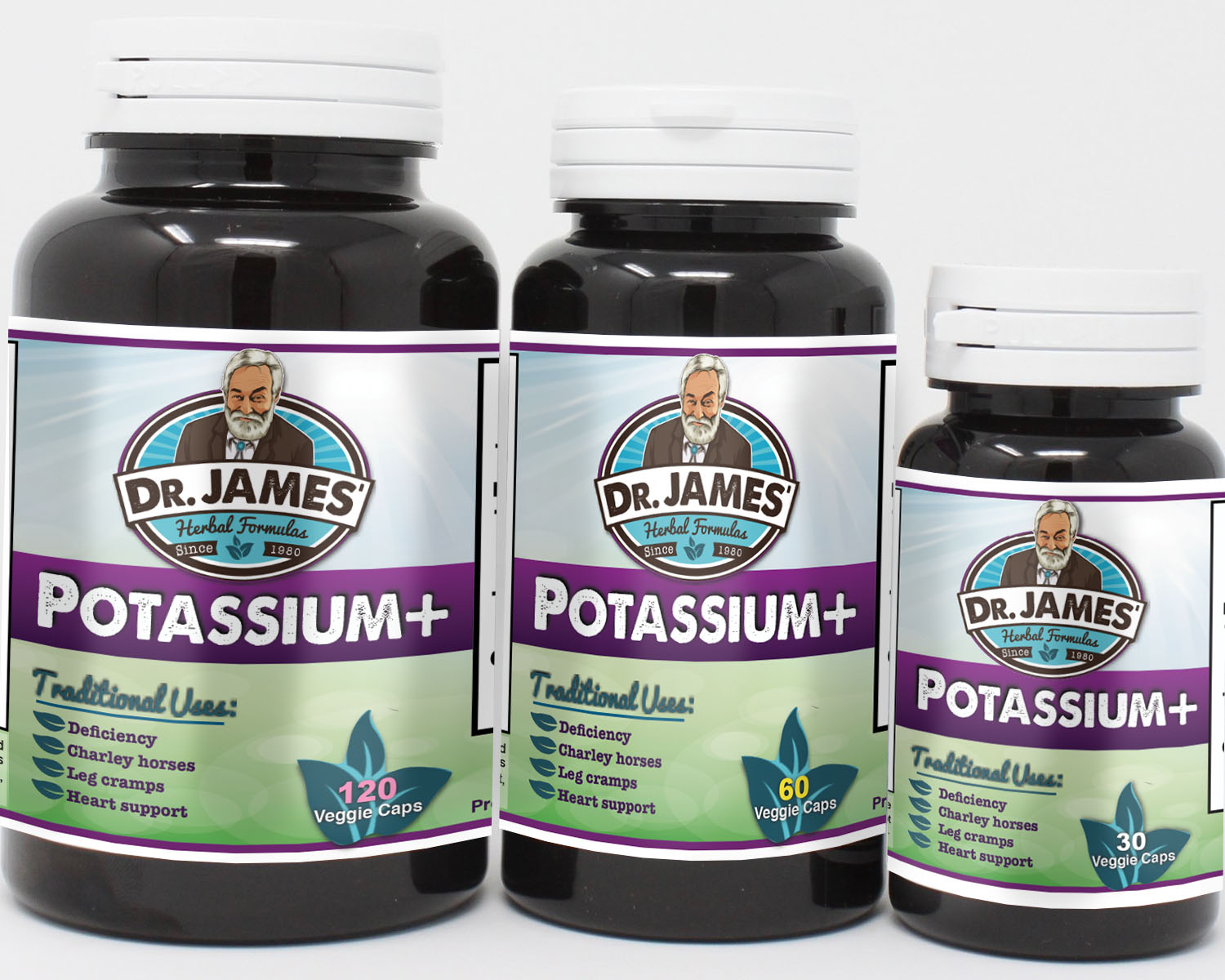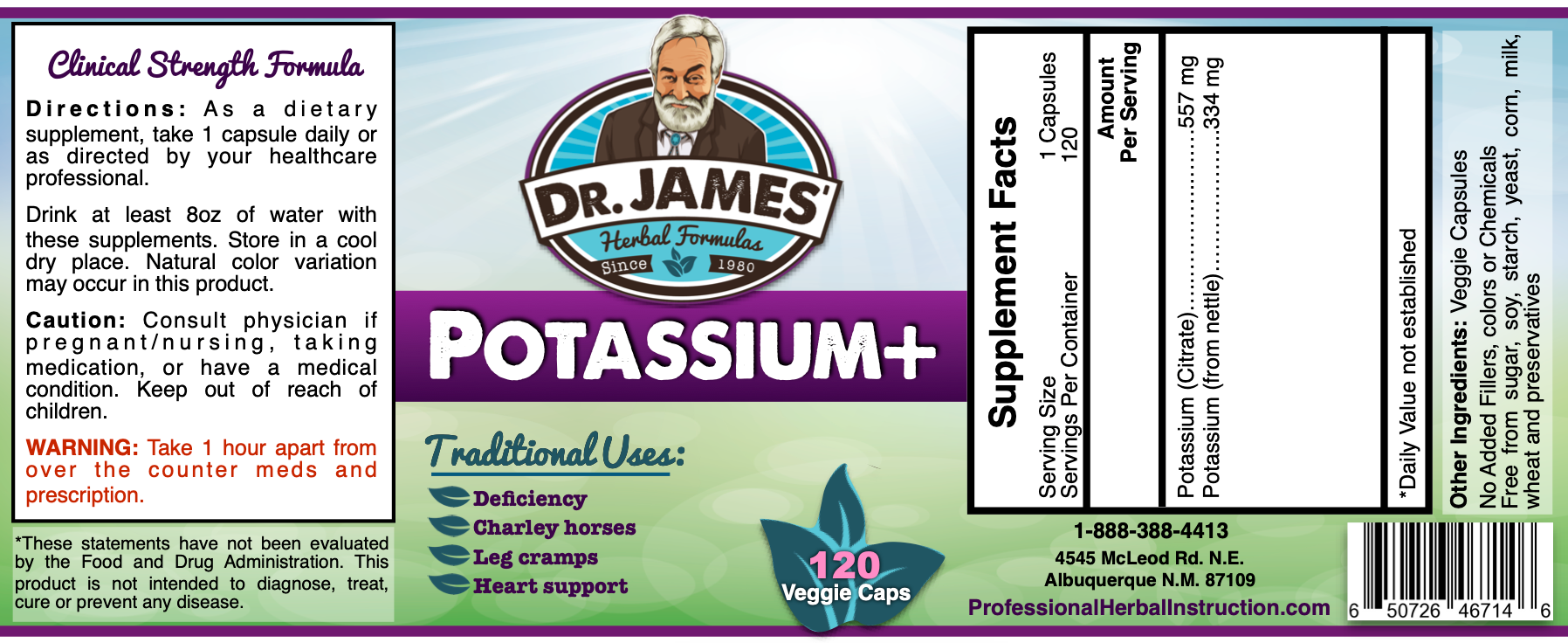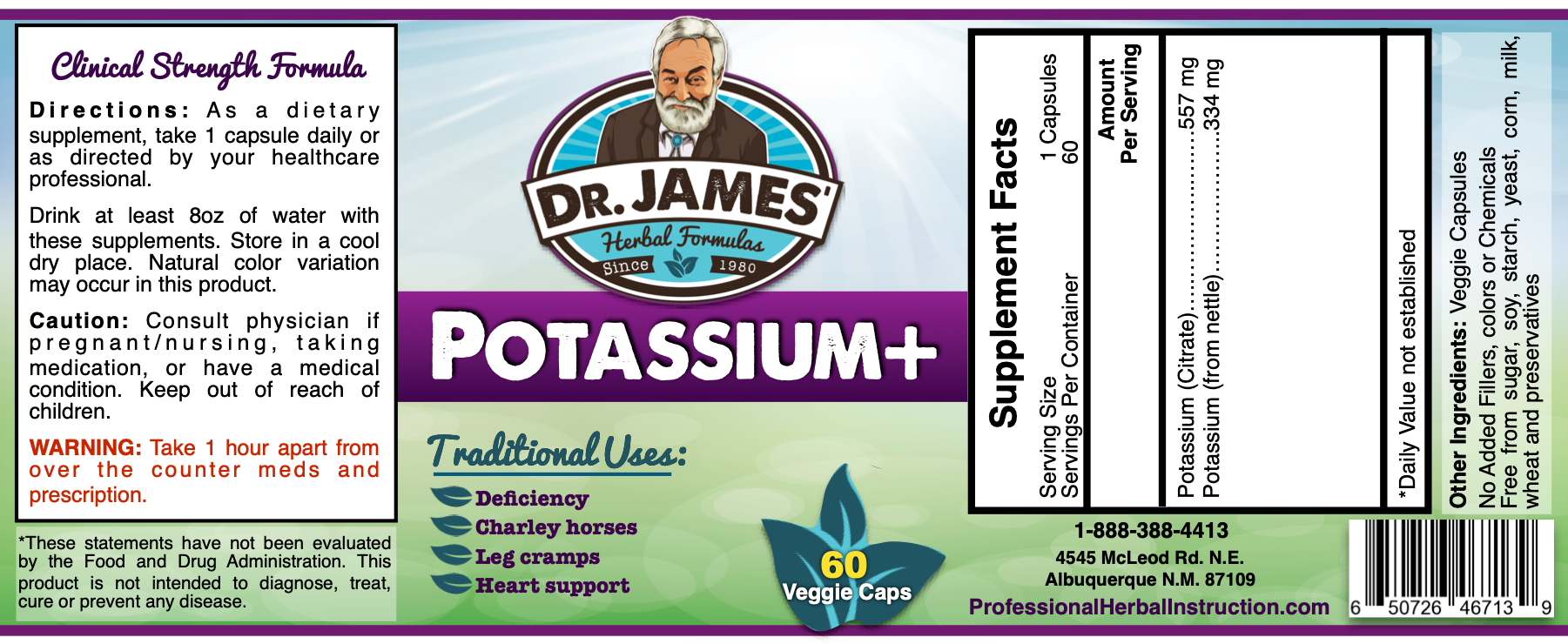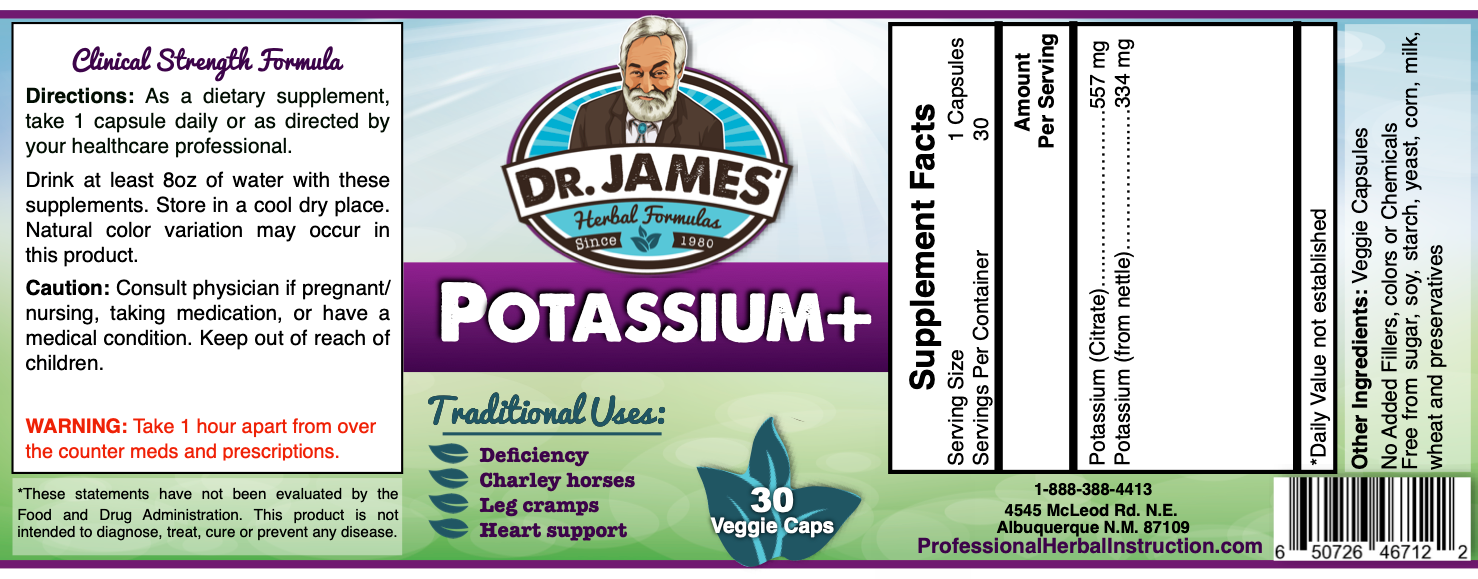



Potassium
Now in Veggie Caps
Body Signs of Potassium Deficiency
- Bone and muscle aches and pains, especially lower back.
- Shooting pains when straightening up after leaning over.
- Dizziness upon straightening up after leaning over.
- Morning dull headaches upon rising and when stressed.
- The body feels heavy, tired and it is an effort to move.
- Dull, faded-looking hair that lacks sheen and luster.
- The scalp is itchy. Dandruff, premature hair thinning or balding may occur.
- The hair is unmanageable, it mats, often looks straw-like, it is extremely dry and other times it is oily.
- The eyes itch, feel sore, uncomfortable and appear bloodshot and watery. Also, eyelids may be granulated with white matter collecting in the corners.
- The eyes tire easily and will not focus as they should.
- Loss of mental alertness and onset of confusion, making decisions difficult. The memory fails; causing you to forget names and places you should remember.
- You tire physically and mentally with the slightest effort.
- You become easily irritated and impatient with your family, friends, loved ones, and even with your business and social acquaintances.
- You feel nervous, depressed and in a mental fog. You have difficulty getting things done due to mental and muscle fatigue. The slightest effort can leave you upset and trembling.
- At times, your hands and feet get chilled, even in warm weather.
Recommended Dietary Allowances: adults, 2000 mg
Potassium is the third most abundant mineral in the body, after calcium and phosphorous. It is critical to maintain proper levels in the body. Potassium works closely with sodium and chloride to maintain fluid distribution and pH balance and to augment nerve-impulse transmission, muscle contraction, and regulation of heartbeat and blood pressure. It helps to reduce the rise in blood pressure during mental stress by reducing the blood constricting effects of adrenaline. Potassium is also required for protein synthesis, carbohydrate metabolism, and insulin secretion by the pancreas. For diabetics, potassium supplementation yields improved insulin sensitivity, responsiveness and secretion. It works with sodium to regulate the body's water balance, aids in clear thinking by sending oxygen to the brain, helps to dispose of body wastes and aids in allergy treatment.
In one study, nutritional support to correct potassium deficiency resulted in significantly reduced rates of surgical complications. Other studies suggest that people who regularly eat potassium-rich foods are less likely to develop atherosclerosis, heart disease, and high blood pressure as well as strokes.
Besides not eating properly, other factors can contribute to a potassium deficiency, such as stress, and the administration of certain medications such as insulin. Marginal potassium deficiency causes no symptoms, but can induce an increase in fluid volume and an impairment of blood pressure regulating mechanisms which can result in hypertension in susceptible individuals. It may also aggravate existing heart disease. More severe deficiency can result in nausea, vomiting, diarrhea, muscle cramps, muscle weakness, poor reflexes, poor concentration, heart arrhythmias.
Potassium (citrate) 557 mg
Pottassium (from Nettle) 334 mg
Choose options




